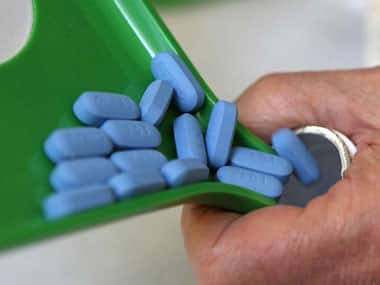New Delhi: Prices of 348 medicines, including life saving drugs, will be cheaper soon by up to 80 percent as the new Drug Price Control Order has come into effect.
Industry experts said the implementation of the new drug policy will lead to slashing of prices of many anti-cancer and anti-infective drugs by 50-80 percent.
[caption id=“attachment_790917” align=“alignleft” width=“380”] The new policy uses a market-based pricing mechanism to fix the price ceiling of a particular drug. Agencies[/caption]
The new policy uses a market-based pricing mechanism to fix the price ceiling of a particular drug. Agencies[/caption]
According to a report in the Times of India, the new regime will result in the decline of prices of 652 formualtions under 27 therapeutic areas, including anti-allergic, cardiac, gastro-intestinal medicines, pain-killers, anti-diabetes, anti-fungal, anti-tuberculosis, anti-leprosy, and anti-hypertensives.
The new policy uses a market-based pricing mechanism to fix the price ceiling of a particular drug, wherein a simple average of prices of all brands which have more than one per cent market share in a particular therapeutic area will be considered. Until now, the pricing was based on input costs.
According to the website of Department of Pharmaceuticals, the government has notified the Drug Prices Control Order (DPCO), 2013, with effect from May 15, replacing the 1995 order.
Impact Shorts
More ShortsThe new order will give power to the National Pharmaceutical Pricing Policy (NPPP) 2012 to regulate prices of 348 essential drugs, while the existing order issued in 1995 covered only 74 bulk drugs.
The NPPP 2012 was approved by the Cabinet on November 22, 2012 and later it was notified on December 7, 2012.
As per the new drugs policy, all strengths and dosages specified in the National List of Essential Medicines (NLEM) 2011 will be under price control.
The DPCO 2013, issued under the Essential Commodities Act, 1955, will lay the framework of the drug policy and mechanism of regulating prices.
According to it, the National Pharmaceuticals Pricing Authority (NPPA) will be the implementation authority for the new policy and the new DPCO.
NPPP-2012 took long to finalise due to differences between ministries of health and chemicals and fertilisers.
Other stakeholders, industry and NGOs had also expressed their concerns on the pricing model which was suggested.
Agencies
)